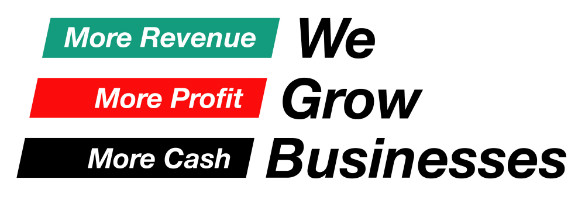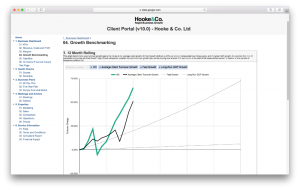I believe that business consultancy is a true multi-skilled profession. I think this is especially true when working with small businesses, where you may be responsible for delivering consulting services, as well as winning the work in the first place. Here is a quick guide, based on personal experience, on how to become a business consultant.
Numbers
Like it or not, all businesses boil down to numbers. Fundamentally, that’s profit and loss, balance sheet and cashflow. But also the key performance indicators (KPIs) that underpin those results, e.g. sales conversion rates.
As a consultant, it’s important to have a robust understanding of the financial position of your clients. It’s also important to understand what KPIs are driving those results, e.g. low profit, due to poor sales, due to poor sales conversion rates.
With this insight, you will have a strong foundation from which to help your clients to succeed. Without this insight, it can be very easy to give your clients inappropriate advice, which can be a recipe for disaster.
Logic
I believe that much of business is logical. For example, if we’re able to double the number of leads a business is generating, then all things being equal, we might roughly double the number of sales.
The ability to think through the logical sequencing of activities, and turn those into a plan is fundamental to becoming an effective consultant. With this skill you will be able to take a client who may be failing to make traction, and deliver tangible progress.
Business Expertise
Nobody knows everything, but as a consultant you need to know a decent amount about your client’s business, management, and/or the domain you choose to specialise in. Clients will naturally look to you for advice or knowledge about how activities have been implemented in other businesses and the results that have been achieved. If you’re having to Google the answer to every client question then your credibility will likely take a knocking.
That said, it’s important to be clear with the client when you don’t know something. An honest, “I’ve never come across this before…”, is a perfectly acceptable response. When this does arise, make it your business to research the answer – either online, or via your colleagues or trusted contacts – and report back to the client.
Relationships
There’s an old saying that people buy people. As a business consultant, there is often the risk that you can be fired at any point. Maintaining strong relationships with your client is absolutely key to your success as a consultant.
Occasionally you may find yourself getting dragged into office politics. Often the best strategy is to keep your distance and remember who makes the decision about whether you are hired or fired.
Experience
I would summarise experience as having first-hand experience of a business situation (the challenge, actions taken and the results) elsewhere, and being able to bring that experience to bear in a new situation. In many ways the experience you have is more important than education you received.
If you’re in the early stages of your career then having experience is a largely a function of time. However, you can accelerate experience by working with a broad cross-section of clients.
Also, spending time learning from more experienced colleagues can accelerate the rate at which you’re able to ‘join up the dots’ in situations, and crystalise your own experiences.
Get Things Done
By becoming a business consultant, you are positioning yourself as an example to aspire to. It is key to deliver the actions you say you’re going to deliver and by the dates you promise. Your business consultant career development depends on it. Confidence plays a big part in leadership skills so believe in yourself and your abilities. Remember to take care of yourself too…stress levels, diet and exercise all play a part in concentration levels.
Best of luck!




